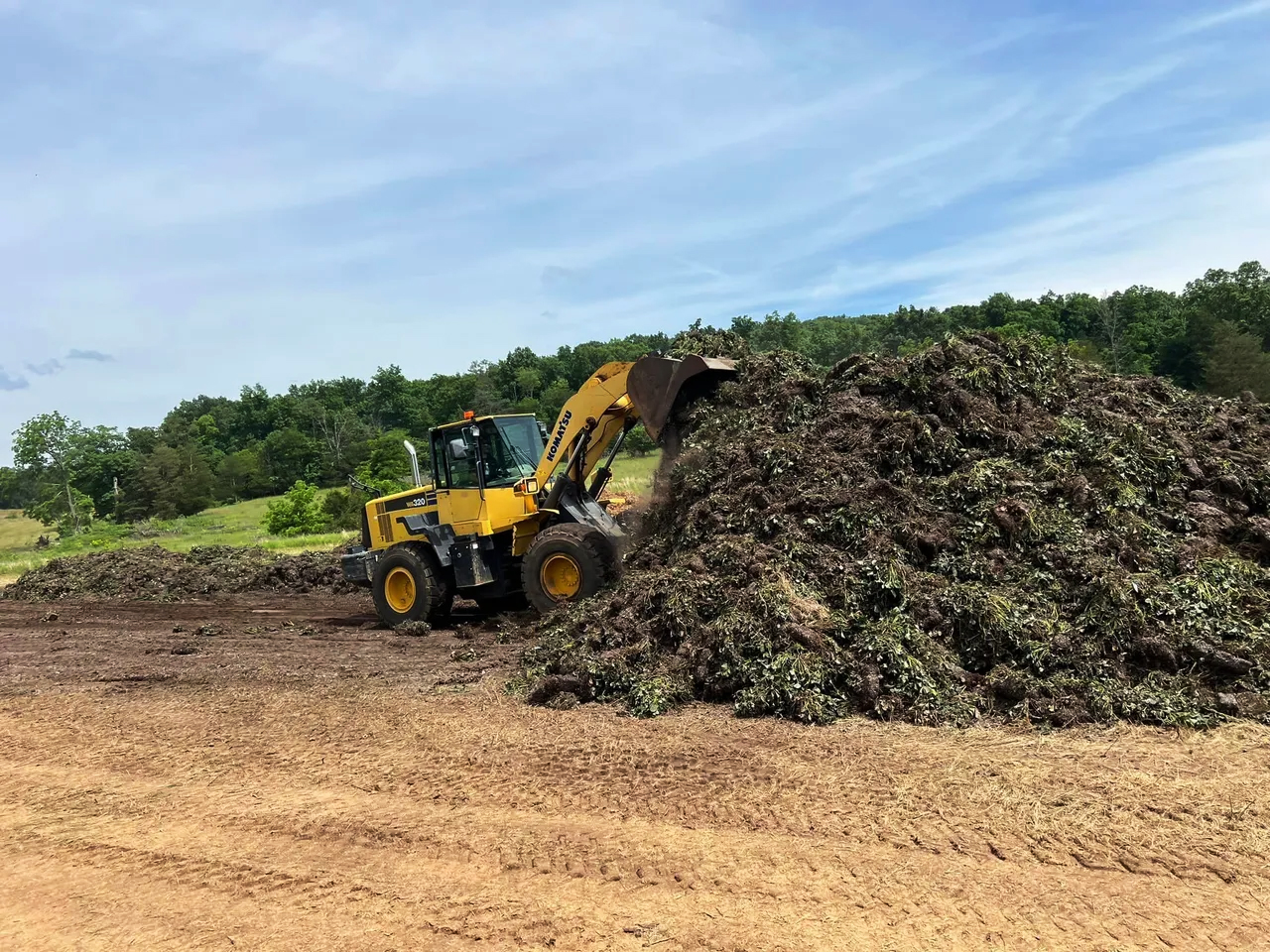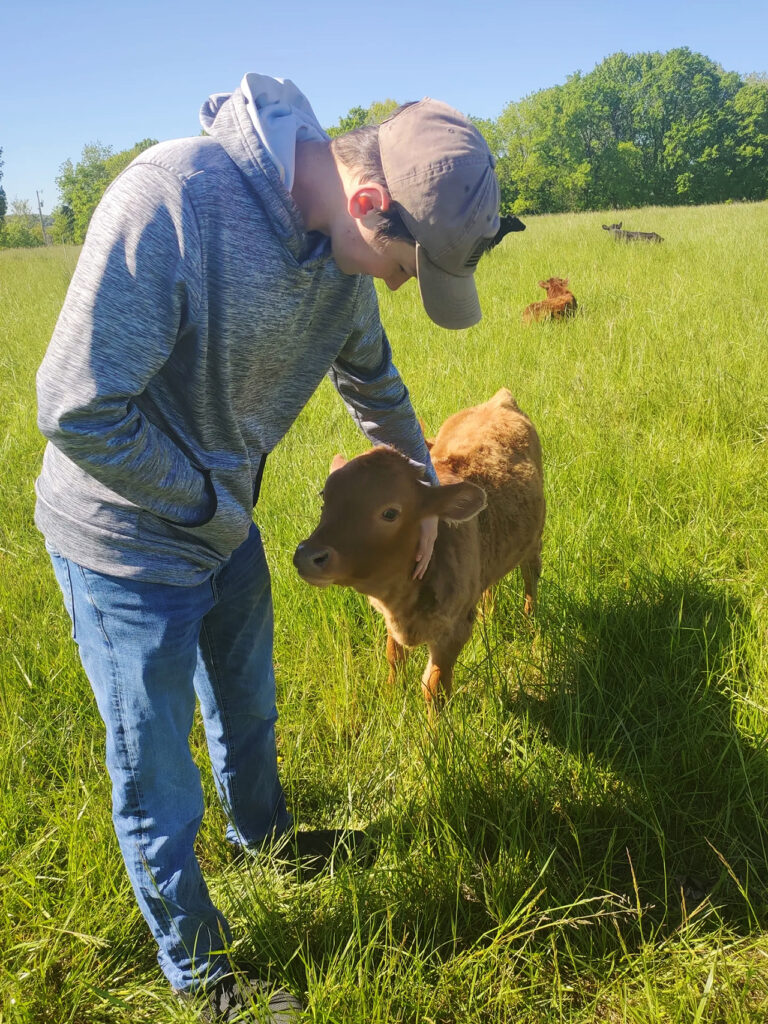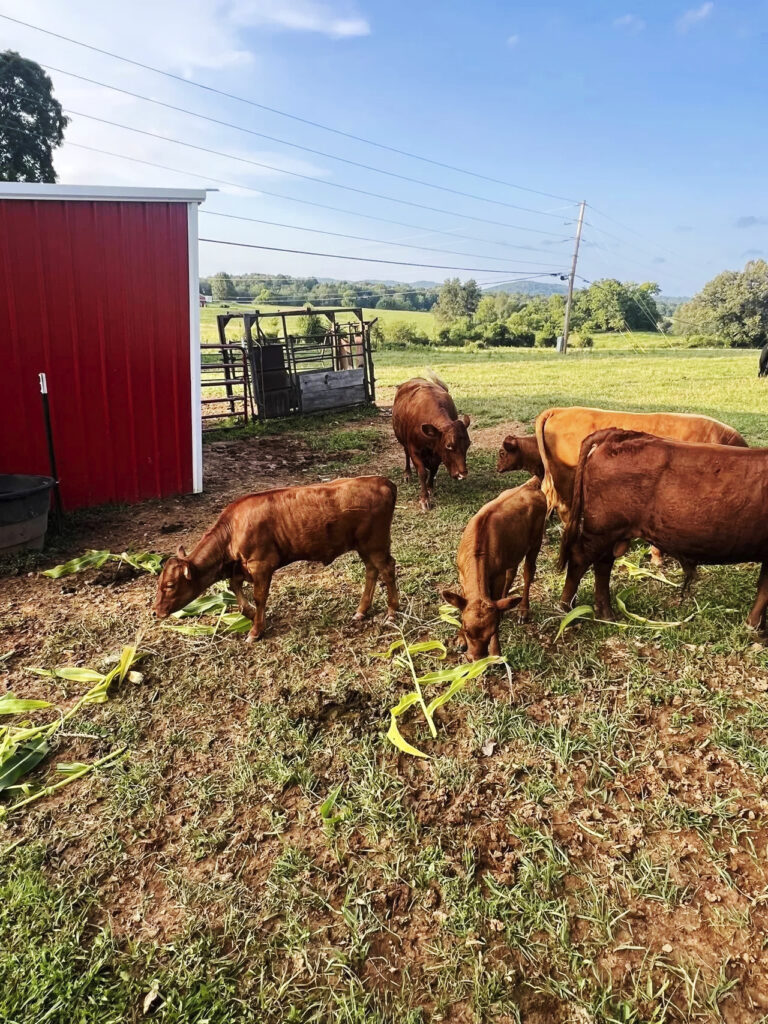Veteran-owned Shopville farm uses SPEDA mini-grant to grow composting operation
Editor’s note: This is the third in a series of profile pieces about the 2024 Somerset-Pulaski Economic Development Authority (SPEDA) mini-grant recipients. SPEDA awards four $2,500 mini-grants annually to businesses with plans to innovate and expand their operations.
When Josh Baker walks his 80-acre farm in Shopville, he’s walking through time.
His grandparents grew up near the farm but left Pulaski County in the 1940s — as many Eastern Kentuckians did during this era — for better economic opportunity in Ohio. They returned in the 1970s and purchased the land Baker now farms.
“I grew up on this ground, exploring the woods and working the fields until I joined the military,” Baker said.
He, too, had reasons for leaving home. While his grandparents chose to chase the American Dream, he chose to protect it. He joined the Army, where he met his wife, and they served their country until retiring in 2022.
Now, this land and legacy have passed on to them. Once a traditional Angus operation that grew hay during the summer to feed the herd in the winter, the Bakers are spending retirement renewing Wise Ass Farms’s focus while maintaining the history and integrity of the land. In addition to raising a different breed of cattle, they are growing a food forest and have started a composting enterprise, the latter catching the attention of the Somerset-Pulaski Economic Development Authority (SPEDA) mini-grant committee. The Bakers applied for and received the $2,500 grant to help grow this part of their operation, which will offer compost — a nutrient-rich soil amendment created by the breakdown of organic materials — to farmers in the spring of 2025 to naturally increase their garden and crop yields.

The genesis of the composting operation came when the Bakers learned that neighboring greenhouse farm Bosch Berries was paying a large amount of money to dispose of its organic waste in a local landfill. The Bakers saw an opportunity to use their land to create a natural fertilizer from this waste that could help farmers across the region increase their yields in a healthy, safe way. Baker said composting this material — unique in that it contains no manure or weeds, only leaves, stems and fruit — would also help Bosch Berries realize significant savings by no longer having to rent a dumpster and pay to haul waste to the landfill.
“We agreed to take over the disposal of this material through composting on our adjacent property,” Baker said. “Initially, we were also paying for a dumpster rental, losing a significant amount of product to decomposition before we could move it to the composting area. Purchasing our own equipment with the SPEDA mini-grant allowed us to move this material before decomposition started and eliminate movement and disposal fees.”
In fact, by owning a dumpster trailer to haul this material to their farm, the Bakers have saved $12,000 in disposal fees over the last six months.
The Bakers now have 500 cubic yards — think, 500 cubes measuring 3 feet on all sides — of material currently composting on Wise Ass Farms that they will be able to market to growers in the spring. Preventing this material from rotting in local landfills has numerous benefits, Baker said, including reducing methane emissions, enhancing soil health, reducing the need for chemical fertilizers and supporting plant growth.
Somerset-Pulaski County is incredibly supportive of veteran-owned businesses, Baker said, but he is also seeing increased support for environmentally sustainable products, making the composting side of Wise Ass Farms a crucial part of the local agriculture industry.
“Pulaski County has always been one of the most patriotic places I’ve ever visited,” Baker said. “The support for local veterans never fails. As Somerset continues to grow, there’s an increased focus on quality, nutritional products that make for a great environment for local agricultural items, and that’s very exciting.”
Baker is quick to note that Wise Ass Farms is still in its infancy and trying new sustainable practices. Baker and his wife are implementing aggressive rotational grazing with their herd of legacy grass-fed Dexter cattle. Dexter cattle are good grazers, Baker said, and this rotational pasture system will reduce the farm’s dependence on additional nutrient sources. This includes planting season-specific forage options native to the area.
The Baker family also raises legacy grass-fed Dexter cattle on their farm. They use aggressive rotational grazing to reduce the farm’s dependence on additional nutrient sources.
“Beef production has changed very little in a very long time,” Baker said. “To keep up, a lot of farmers buy more expensive equipment to make more hay and spend more every year on fertilizers, pesticides, lab-developed seeds, and high-cost feeds. We want to explore how much we can reduce these inputs while producing a superior and healthier product.”
Baker said he plans to sell breeding pairs of Dexter cattle to farmers looking to start small herds or increase their self-sustainability. The farm will eventually harvest meat from the herd.
“Their (Dexter cattle) extremely gentle nature — sometimes I think they’re more dog than cow — is great for those who don’t have experience with a larger, more traditional breed,” Baker said. “We use no antibiotics, steroids, or hormones. Eventually, we will sell this exceptional meat directly to local restaurants.”
The Bakers will also eventually harvest their food forest, which includes over 300 trees and plants. The forest is growing everything from pecans to peaches and has a significant number of grapevines. These items will be made available as soon as they mature, Baker said.
The ultimate goal for the Bakers is to use their property for the environmental good, constantly looking to the future by paying homage to where they came from.
“The thing I’m most impressed by is that there’s a quiet movement taking place across the country composed of people with similar goals,” Baker said. “These folks are eager to share their experience, and that has been a tremendous help to us as we strive to honor this land.”
Learn more about Wise Ass Farms, including the history behind the name of the farm, at wiseassfarms.com.



